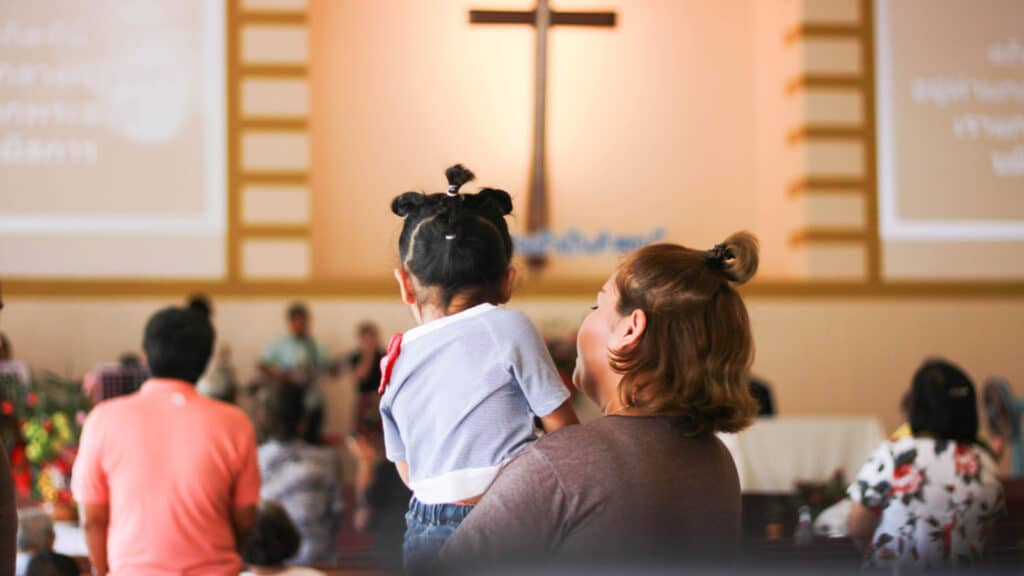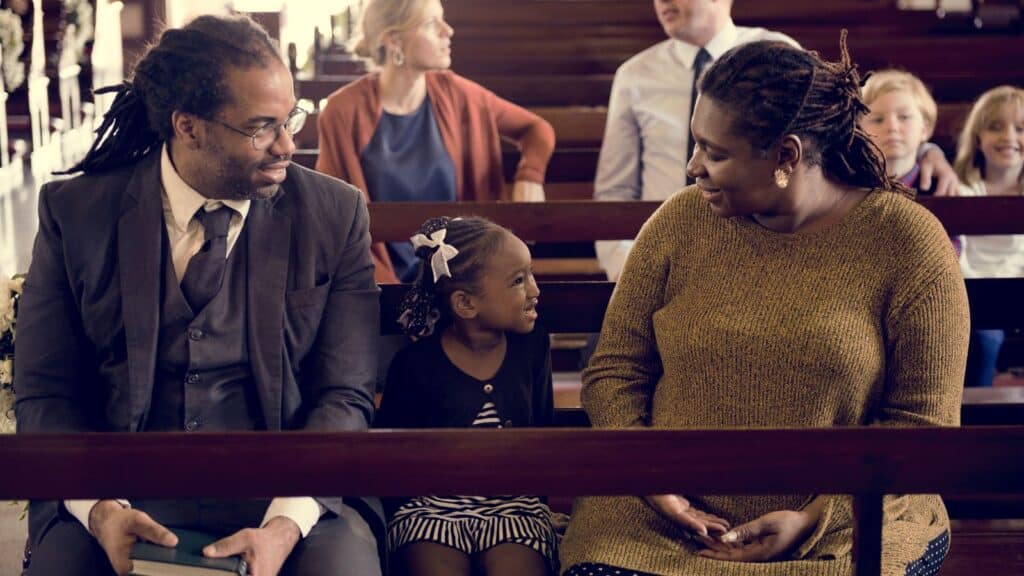According to research, 70% of White evangelical parents say it’s very important that their kids have similar religious beliefs to theirs. These numbers are similar for other religions, as many believe religion is the right path for their child. We take a look at 20 reasons why parents want to raise their child with a religion:
Spiritual Fulfillment

Connecting children to a sense of something larger than themselves and exploring spiritual questions is something parents believe religion can do. It can offer narratives and communities that give children a sense of purpose and belonging beyond themselves, connecting them to something more significant and enduring.
Meaning and Purpose

Many religious traditions offer comprehensive narratives about the world, its existence, and its individual roles. These narratives can help children answer questions about life, death, and purpose, providing a framework for understanding their place in the universe.
Personal Values and Ethics

Many religions provide clear guidelines for ethical behavior, often rooted in universal values like compassion, respect, honesty, and responsibility. These principles serve as a foundation for children to make morally sound decisions.
Strength and Cohesion

Shared religious beliefs and values can strengthen family bonds and provide a common ground for communication and conflict resolution, promoting ethical interactions within the family unit. This is one of the main reasons parents want their children to follow their religious beliefs.
Personal Growth and Development

Religious practices like meditation, prayer, or reflection can encourage self-awareness, exploration of inner thoughts and feelings, and the search for personal meaning and purpose., and positive character traits through religious practices. While these traits can be learned in other areas of a child’s life, many parents think religion is a base for personal growth and development.
Cultural Identity and Heritage

Passing down cultural traditions and connecting children to their family’s history and background is something parents think religion can bring. Religions vary greatly in their core beliefs, ranging from monotheistic to polytheistic, emphasizing different values and interpretations of the divine or spiritual. Parents can bring their children as one religion while acknowledging and teaching others.
Belonging to a Community

Religious communities can provide a sense of belonging and social support, where children can learn from positive peer examples and receive encouragement for their ethical choices. This is especially the case for children who do not have an extensive family network to call on for support.
Diverse Interpretations and Experiences

Different religious interpretations and communities have varying approaches to coping with challenges. Respecting this diversity and fostering critical thinking is essential, something that is embraced in many religions. Embracing diversity is essential to children’s education, so religion is a great tool to enhance children’s inclusivity.
Developing a Moral Compass

Examining religious teachings and values can help children develop their moral compass, guiding their thoughts, actions, and decisions as they navigate their growth journey. While children’s opinions will change throughout life, all roads will lead back to what their religion teaches them.
Coping with Challenges

Many religious rituals like prayer, meditation, or rituals can provide tools for managing stress, anxiety, and difficult emotions. This can help children find inner peace and develop coping mechanisms for various challenges.
Resilience and Hope

Many religions emphasize hope for the future and a belief in something larger than oneself. Parents believe religion can foster optimism and positive expectations, empowering children to persevere through hardships.
Offers Guidance and Support

Religious communities can provide a sense of belonging and connection, especially for children who might feel isolated or alone. This can boost self-esteem, offer emotional support, and foster a sense of purpose and meaning.
Moral Education and Guidance

We teach children about virtues, right and wrong, and social responsibility. Many religions offer clear moral frameworks based on compassion, honesty, and respect. These frameworks can provide children with a foundation for understanding right and wrong and making ethical decisions.
Community Resources and Activities

Religious communities often offer a variety of activities and events that can help children make friends and socialize with others who share their values. This can be especially beneficial for children who are shy or introverted.
Character Development and Life Skills

Religious practices like prayer, meditation, or service can cultivate self-reflection, empathy, and a sense of responsibility towards others, potentially contributing to character development. Children will learn passages from religious texts that can guide them through life with the help of their parents.
Structure and Discipline

Regular participation in religious rituals, prayers, or services can create a sense of routine and predictability, offering structure to children’s lives. Many religions offer clear moral codes and guidelines, defining right and wrong and potentially influencing behavior through rewards and consequences.
Self-Awareness

Religious practices like meditation, prayer, or reflection can encourage self-awareness, exploration of inner thoughts and feelings, and searching for personal meaning and purpose. Religious leaders and parents can encourage self-reflection in children, leading them to be better people as they grow.
Compassion and Empathy

Religious teachings often emphasize values like compassion, kindness, and understanding towards others. This can foster empathy and encourage children to act with consideration and care for others, contributing to their social and emotional growth.
Forgiveness and Acceptance

Exploring concepts of forgiveness and acceptance can benefit emotional growth, helping children learn to release negativity, move on from mistakes, and accept themselves and others.
Service and Responsibility

Many religions emphasize the importance of serving others and contributing to the community. This can teach children responsibility, selflessness, and the value of ethical behavior beyond individual benefit.
19 Grim Realities of Dating After 50 That Are Often Overlooked

19 Grim Realities of Dating After 50 That Are Often Overlooked
26 Things That Will Be Extinct Because Millennials Refuse to Buy Them

26 Things That Will Be Extinct Because Millennials Refuse to Buy Them
24 Outdated Slang Terms You Absolutely Shouldn’t Be Using Anymore

24 Outdated Slang Terms You Absolutely Shouldn’t Be Using Anymore
25 Hardest Parts About Getting Older That No One Ever Talks About

25 Hardest Parts About Getting Older That No One Ever Talks About




